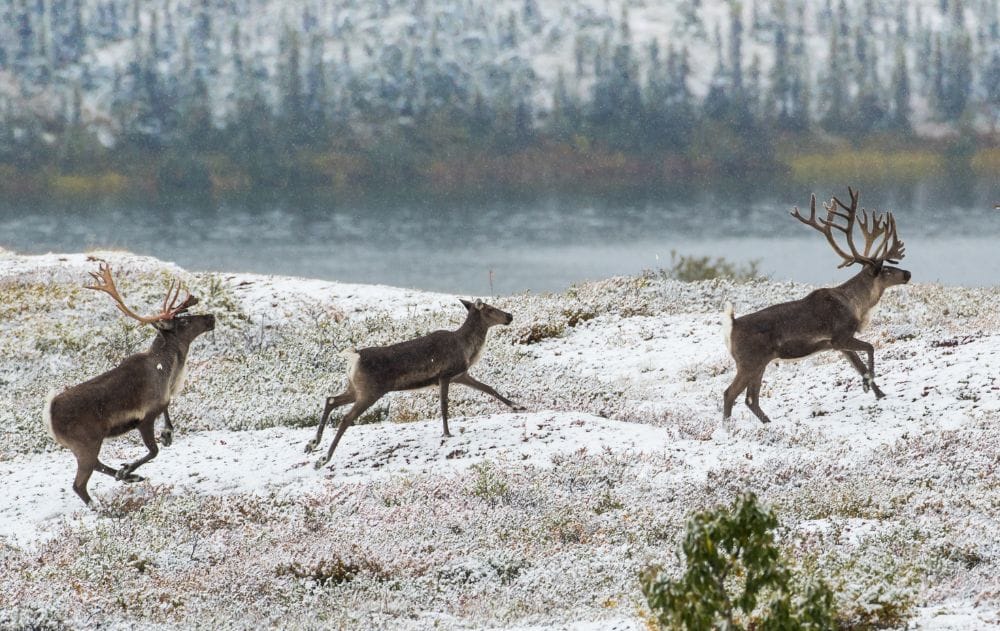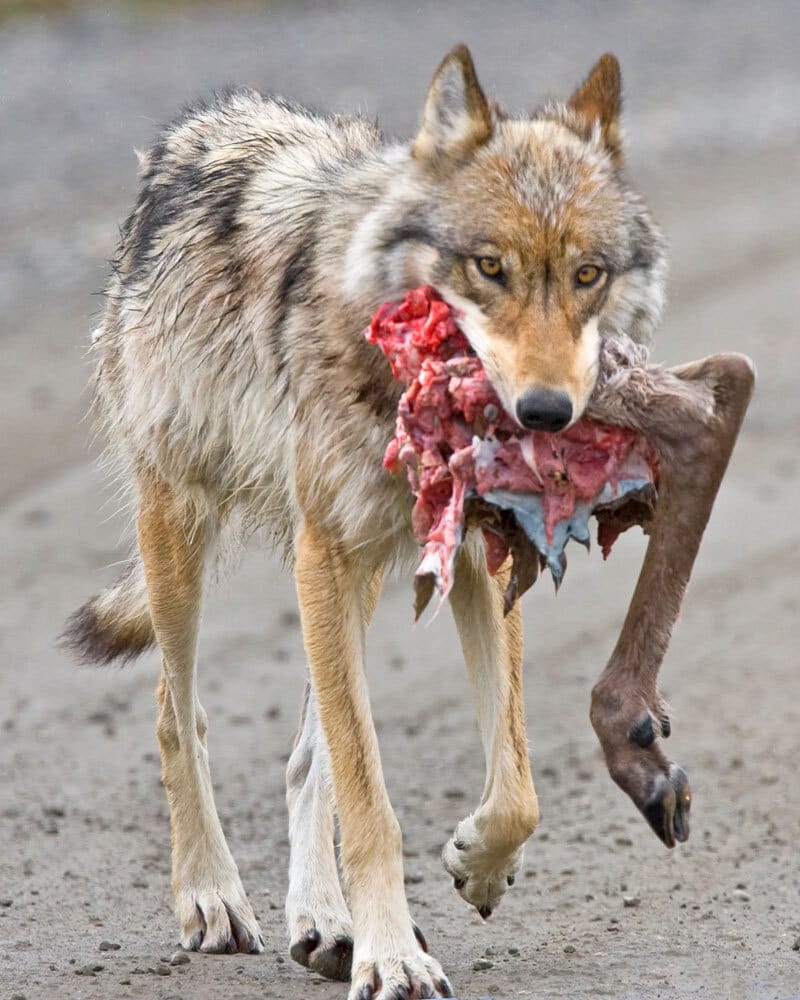
Alaska's Department of Fish and Game is seeking emergency authorization to continue its predator control program in the Mulchatna Caribou Herd's range, despite a recent court ruling declaring the program unconstitutional. The department petitioned the state Board of Game last week for an emergency regulation to allow the "intensive management" program to continue for a third year.
The program, which involves killing bears and wolves, aims to increase the caribou population, which has dwindled from 200,000 in 1997 to about 13,000 today. Hunting has been closed for several years, and the department argues that removing predators is necessary to allow the herd to recover.
The department claims that the program has already benefited the herd by increasing the number of calves born, and that continuing the program is "critical" to the goal of allowing hunting to resume. Since 2023, the program has killed nearly 200 bears and 19 wolves.
“To be effective the MCH IM program was designed to manage large predator populations in a small, defined area at a low density for a period of time long enough to allow caribou calves to be recruited into the population and to reproduce, which is a minimum of three years,” the petition said. “The department is asking the board to find an emergency and make emergency regulations to aid in achieving the IM objectives and to provide a harvestable surplus.”

Wolf chowing down on caribou. Ken Conger / NPS
The Alaska Wildlife Alliance, the plaintiff in the case that resulted in last week’s ruling, said the Department of Fish and Game is attempting to circumvent the law.
In his March 14 ruling, Superior Court Judge Andrew Guidi found that the Board of Game’s 2022 action authorizing the predator control program violated constitutional standards for public notice and public comment. The Alaska Wildlife Alliance and Anchorage attorney Michelle Bittner, who filed a separate lawsuit challenging the predator-culling program, argued that the board rushed its approval through improper and secretive means.
Guidi also found that the board’s approval of bear kills in the Mulchatna caribou range failed to properly consider impacts to the bear population, in violation of constitutional mandates for sustainable management.
While department officials point to bears and wolves as limiting recovery, opponents of the bear- and wolf-killing program say other factors are causing the caribou decline. These factors include some sweeping habitat changes, that paired with a warming climate, allow woody bushes and trees to spread into tundra territory. Caribou from herds like the Mulchatna depend on tundra plants for food, but the proliferation of woody plants has made the area more favorable for moose who are in direct competition with caribou for resources.
As of right now, Alaska’s Department of Fish and Game has its sights set on restoring the caribou population to between 30,000 and 80,000 animals. They believe that an annual hunt of 2,400 to 8,000 animals would be sustainable at those population levels and are set to discuss the emergency order at the upcoming eight-day meeting held by the State Board of Game.

